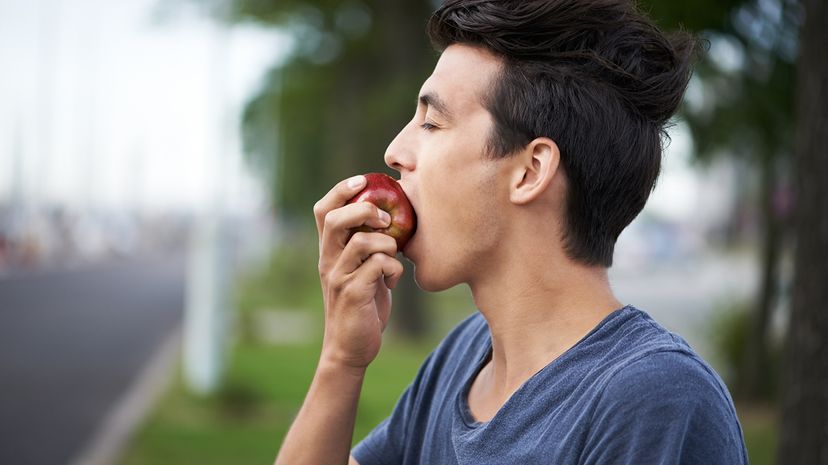
Ever had an itch you couldn't scratch? Well, up to 75 percent of adults allergic to birch tree pollen who eat raw common pitted fruits (like apples, cherries and pears) or vegetables (like celery and carrots) have that exact problem. And hay fever, aka allergic rhinitis, is the primary culprit.
Proteins in some fruits and vegetables mimic proteins in pollen, which upsets the immune system. This cross-reaction is known as oral allergy syndrome (OAS), or pollen-food syndrome, which may cause itchiness or swelling in the mouth, face, lip, tongue and throat immediately after eating raw fruits and vegetables. IgE (Immunoglobulin E) antibody-mediated reactions release chemicals as they travel to cells, causing an allergic reaction.
Advertisement
You can go years without having the condition — it usually appears in late childhood to young adulthood. But don't be alarmed if you think you have it: OAS is a mild food allergy, and only in rare cases causes harmful reactions like anaphylaxis or severe throat swelling.
Just like other allergies, OAS occurs at any time of the year and isn't the same for everyone. Some people may get an allergic reaction by eating only one apple variety, multiple types of fruits or vegetables, or even a specific kind of nut, such as peanuts or hazelnuts. In fact, researchers in Japan that gave skin-prick tests to and measured IgE levels of 63 patients with OAS over six years found that apples, peaches, kiwi and melons produced the most OAS cases in the study.
But a person's food allergy depends on her seasonal allergy. For instance, people with allergies to grasses may have a reaction to peaches and tomatoes, while people allergic to ragweed may react to banana and zucchini.
In case you're itching to know, there's no specific OAS test, but an allergy skin test or blood test for specific pollen should do the trick. Granted, the itch in your mouth after ingesting certain foods could surely be a sign of the syndrome. Since protein is often concentrated in a food's skin, peeling it first may be help. Or you could turn up the heat and opt for microwaving or baking, which breaks down the proteins that trigger OAS. But the best defense is to avoid the raw foods that cause the reactions.
Advertisement

